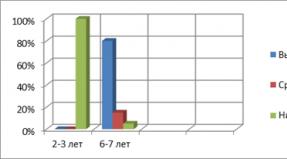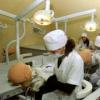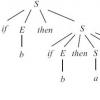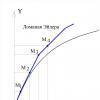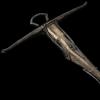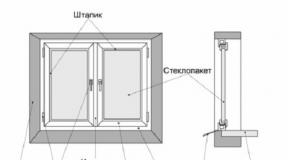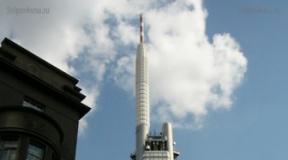Antiviral drugs for influenza: pros and cons. Preparations with the letter a Honey preparations with the letter
Every year, with the beginning of the seasonal epidemic of colds and flu, the question arises: are there inexpensive, effective antiviral drugs for adults on sale that really help protect themselves from infection, or at least speed up recovery and prevent serious complications of SARS?
Does the effectiveness of antiviral drugs depend on price and manufacturer? Are there pills for influenza and ARVI, the action of which has been tested and proven by international scientific research? You will learn the answers to all these questions later.
How to distinguish influenza from SARS?
Acute respiratory viral infections (ARVI)- these are the most widespread inflammatory diseases in the world, which are caused by more than three hundred different viruses, affect the upper respiratory tract and are easily transmitted from patient to healthy person... This explains the high epidemiological danger of ARVI and the need of modern medicine for effective antiviral drugs.

3 clinically proven antiviral drugs
According to the Centers for Disease Control and Prevention (CDC), clinically confirmed antiviral drugs include:
A place |
Brand name |
Price |
Baloxavir marboxil (Xofluza)

Active substance: first drug in the group of cap-dependent endonuclease inhibitors.
Analogs: does not exist
Price: You can buy baloxavir marboxil in Japan for $ 50 per tablet.
This is the only single-dose antiviral drug that eliminates symptoms in two days, and normalizes body temperature in just one day.
The clinical efficacy of the drug is significantly superior to Tamiflu and other existing analogues.
Baloxavir marboxil acts against influenza A and B viruses, including strains resistant to oseltamivir (Tamiflu).
For 2018 only registered in Japan and the USA.

Active substance: oseltamivir phosphate
Analogs: Nomides
Price: 1200-1400 rubles
Oseltamivir is a well-tolerated orally active neuraminidase inhibitor that significantly shortens the duration of symptomatic illness and accelerates the return to normal levels activity when given immediately in patients with influenza. Therefore, it represents a useful therapeutic alternative to zanamivir (especially in patients who prefer oral administration) and M2 inhibitors amantadine and rimantadine (due to more wide range anti-influenza activity and a lower likelihood of resistance).
According to the results of large-scale international studies, Tamiflu reduces the likelihood of contracting influenza from a sick family member by 92% and the risk of the disease turning into pneumonia by 78%.
Short-term administration of oseltamivir (75 mg once daily for 7 days) can significantly reduce the risk of illness from contact with an infected person when given within 48 hours of symptom onset in an infected person.
The drug is available in the form of capsules and powder for the preparation of a suspension, which can be given to children from 1 year old, and in conditions of an influenza pandemic - from 6 months. The question of the appointment of Tamiflu to pregnant and lactating women is decided on the basis of the ratio of the expected benefits and potential harm.
In addition to the obvious drawback - the high price - the drug has a wide list of side effects, including not only allergies and dyspeptic disorders, but also such frightening manifestations as anaphylactic shock, hallucinations, convulsions, nightmares, psychosis and suicidal tendencies. For example, in Japan, according to official figures, 15 teenagers who took Tamiflu committed suicide. However, a direct link between the drug and tragedies has not been proven. During the swine flu epidemic, the governments of the United States and Great Britain carried out massive state purchases of Tamiflu, which were subsequently stopped due to discrediting this antiviral agent.

Active substance: zanamivir
Analogs: No
Price: 960-1500 rubles
This French-made antiviral drug is selective inhibitor the enzyme neuraminidase, with the help of which influenza virions are introduced into the cells of the human body.
Relenza is a fine powder that must be sprayed onto the mucous membranes of the upper respiratory tract using the supplied inhaler. Surfaces treated in this way are covered with a protective barrier that cannot be overcome by the pathogen. And if the infection has already occurred, using Relenza can stop the spread of the disease.
It is also noteworthy that the drug works in the extracellular space, without penetrating inside and without disrupting the normal state of tissues. Relensa can be used from the age of five.
The medicine is contraindicated during the period of gestation and breastfeeding, it should not be sprayed for diseases accompanied by bronchospasm. Relenza is very expensive, with recent reports of severe side effects of this drug becoming more frequent: Quincke's edema, epidermal necrolysis, apnea, convulsions, hallucinations, depression. It should also be borne in mind that Relenza is active exclusively against influenza A and B viruses; it makes no sense to apply it against other acute respiratory viral infections.

Active substance: rimantadine hydrochloride
Analogs: Orvirem, Remavir
Price: 70-300 rubles depending on the brand
The drug belongs to the category of M2-channel blockers; it prevents virions from releasing their RNA after entering cells.
The drug is available in the form of tablets for adults and syrup for children from 1 year old (under the brand name Orvirem).
Not effective against swine flu since 2009. According to the Centers for Disease Control and Prevention (CDC), the high level stability (>
You can not use this drug during pregnancy and lactation, renal and hepatic failure, thyrotoxicosis and severe forms of epilepsy. There is evidence that in elderly patients with hypertension, Remantadine increases the risk of hemorrhagic stroke. The medicine can cause allergies, headache, dyspeptic disorders, insomnia, nervousness and impaired concentration.

Active substance: adamantan-1-amine
Analogs: Midantan
Price: 50-150 rudders
This drug is the "ancestor" of the group of M2-channel blockers. For the first time, Amantadine was used as an antiviral agent in the 60s of the last century. It was later discovered and confirmed to be effective as a cure for Parkinson's disease. And in the United States, with the help of Amantadine, they were even able to cure rabies in humans.
In Russia, Amantadine and Midantan are widely used for the prevention and treatment of influenza along with Remantadine, all of these antiviral drugs belong to the same class and have a similar principle of action.
Not effective against swine flu since 2009. According to the Centers for Disease Control and Prevention (CDC), adamantane resistance remains high (> 99%) among circulating influenza A (H3N2) and influenza A (H1N1) pdm09 (“2009 H1N1”) viruses. Therefore, amantadine and rimantadine are not recommended for antiviral treatment or prevention of currently circulating influenza A viruses.
Amantadin has a very long list of contraindications: it is not used in childhood, with serious pathologies of the gastrointestinal tract, cardiovascular, urinary and nervous system, during pregnancy and lactation. The drug often causes allergies, dyspeptic disorders, etc. It should not be taken by people driving or driving. complex mechanisms because Amantadine reduces concentration.
Note! Any antiviral medication is only effective if taken within the first 48 hours of the onset of cold symptoms.
Pros and cons of other antiviral drugs
Brand name |
The main plus |
Rectal suppositories are one of the most powerful stimulants of nonspecific immunity. |
|
Stimulates both innate and acquired immunity. |
|
Effective against influenza viruses A / H / 3N2 and B. Prevents viral particles from invading cells and releasing their harmful RNA. |
|
Interferon inductor. Differs in the minimum incidence of side effects. |
|
Sublingual tablets - temporarily increase nonspecific resistance to influenza. |
|
A chemical compound that helps restore lymphocytic function, stimulates blastogenesis in a number of monocytes, activates the activity of T-helpers. |
|
The nasal spray compares favorably with most other antiviral agents, activates cellular and humoral immunity. |
|
Natural preparation, stimulates the production of B-lymphocytes and cytotoxic lymphocytes, stimulate the activity of macrophage cells. |
|
Produces a pronounced anti-inflammatory, antiseptic, antipyretic, analgesic and decongestant effect. |
|
Ampoules for solution preparation and nasal instillation. Strengthens local non-specific immunity. |
|
It stabilizes cell membranes, preventing the penetration of virions, induces the synthesis of alpha and beta interferons, stimulates cellular and humoral immunity. |
|
Increases the production of interferon upon contact with an infectious agent and creates high titers of endogenous alpha and beta interferons in the body. |
|
Oxolinic ointment - acts locally. |
|
Strengthens the nonspecific immune response due to hexose glycoside. |
|
It activates the production of all cytokines, but to a greater extent affects the synthesis of protective proteins of the alpha class, rather than beta and gamma. |
|
Changes the properties of cell membranes in such a way that the penetration of viral particles into them becomes impossible. |
|
Stimulates the synthesis of endogenous interferons: alpha, beta and gamma. At the systemic level, it activates the activity of macrophages and neutrophils. |
|
A modern Russian drug, active against 15 strains of influenza, is similar in origin and principle of action to Ribavirin. |

Active substance: human recombinant alpha-2b interferon, tocopherol acetate, ascorbic acid
Analogs: Kipferon
Price: 230-950 rubles
This medicine is available in the form of rectal suppositories, this method of administration ensures the best absorption of interferon and the minimum risk of side effects. Viferon helps to cope not only with influenza and acute respiratory viral infections, but also with severe chronic pathologies bacterial nature, since this drug is one of the most powerful stimulants of nonspecific immunity. Viferon suppositories are prescribed even to premature babies with congenital infectious diseases and sick pregnant women to minimize intrauterine infection of the fetus. The drug is available in a wide range of dosages: from 150,000 IU to 3,000,000 IU.
The conditional shortcomings of Viferon can only be attributed to its impressive cost. Undesirable side effects when using these antiviral suppositories are extremely rare and are limited to an allergic skin rash, which resolves itself 72 hours after the drug is discontinued.

Active substance: sodium salt copolymer of gossypol and carboxymethyl cellulose
Analogs: No
Price: 220-280 rubles
One of the most popular antiviral drugs for influenza and acute respiratory viral infections, belongs to the group of inducers of endogenous interferons, however, the sphere of influence of Kagocel extends to macrophages, T- and B-lymphocytes, fibroblasts, granulocytes and endothelial cells, that is, stimulation of both congenital and and acquired immunity. The drug has not only immunomodulatory and antiviral effects, but also protects the body from radiation and even suppresses the growth of tumors - this property is currently being actively studied. Kagocel is approved for use by adults and children over 3 years old, available in tablets, the course of treatment for influenza or ARVI takes 4-7 days.
This medicine is made from gossypol, a toxic yellow pigment found in cotton. In high doses, gossypol even stops spermatogenesis in men. However, it should be understood that Kagocel is a sodium salt of the copolymer, and not gossypol itself, therefore the drug exhibits completely different properties. However, sometimes it causes allergic reactions, and it is not prescribed to expectant and lactating mothers.
The Evidence-Based Medicine Society, specifically Vasily Vlasov, criticizes two available studies that allegedly prove the effectiveness of Kagocel. In fact, these studies contain a lot of evidence of bad practice, they are sponsored by manufacturers and even accompanied by promotional materials.

Active substance: a-propyl-1-adamaptyl-ethylamine hydrochloride
Analogs: chemical structure and principle of action is close to Remantadine
Price: 30-50 rubles
The drug belongs to the group of ion channel blockers, has scientifically proven efficacy against influenza A / H / 3N2 and B. Adapromin prevents viral particles from entering cells and releasing their harmful RNA, thereby stopping the spread of infection throughout the body. You can take Adapromin both with preventive purpose during the seasonal flu epidemic, and during the first three days from the onset of the disease to alleviate its symptoms and reduce the risk of complications.
Adapromin is a fairly toxic substance, its intake is often accompanied by dyspeptic disorders. This antiviral drug is intended strictly for adults, it is contraindicated for people with kidney and liver problems, as well as for pregnant and lactating women. Consider also that Adapromin only helps against the above types of influenza, it is not suitable for the prevention and treatment of ARVI.

Active substance: enisamia iodide
Analogs: No
Price: 360-420 rubles
The drug belongs to the group of endogenous interferon inducers; after entering the bloodstream, it stimulates the production of the corresponding protective protein. This allows Amizon to indirectly prevent the spread of influenza and ARVI viruses, and the earlier treatment is started, the more successful the result will be. The drug has no direct analogues on the pharmaceutical market, it has a minimal incidence of side effects - only about 6%, which is very good in comparison with other antiviral drugs from the group of interferon inducers.
The disadvantages of Amizon include the inability to use in childhood, as well as during gestation, etc. These limitations are explained by the relative novelty of the drug and insufficient research on its effect on the body. From side effects, bitterness and burning sensation in the mouth, salivation and swelling of the mucous membrane are occasionally recorded.

Active substance: sea buckthorn leaf extract
Analogs: No
Price: 120-180 rubles
This antiviral drug is a natural inducer of interferon, it temporarily increases nonspecific resistance to influenza, adenoviruses, rhinoviruses, parainfluenza and other respiratory infections. The drug demonstrates the greatest effectiveness if therapy is started early. During the first 3-5 days of illness, it is recommended to dissolve the hyporamine sublingual tablets every 2-3 hours. The drug is approved for use in children over 3 years old; the manufacturer has not provided data on the effect on the course of pregnancy and lactation.
In case of prolonged excess of the dosage, it is possible to increase the coagulating properties of the blood, but this indicator quickly returns to normal after the drug is discontinued. The antiviral effect of Hyporamine does not have a solid evidence base, so we can say that you purchase it at your own peril and risk.

Active substance: inosine pranobex
Analogs: Isoprinosine
Price: 580-660 rubles
The drug belongs to the group of immunomodulators and is effective in case of infection with many viral infections, including influenza and SARS. The active component of Groprinosin is an artificially created chemical compound, which contributes to the restoration of lymphocytic function during the period of immunosuppression, stimulates blastogenesis in a series of monocytes, activates the activity of T-helpers, prevents a decrease in the body's immune defense during prolonged exposure to glucocorticoids. Groprinosin is approved for use in adults and children over 3 years old and weighing more than 15 kg.
This is very serious and potentially dangerous medicine, it causes many side effects from a number of organs and systems, is contraindicated in pregnancy, lactation, gout, urolithiasis and . It is advisable to use Groprinosin for influenza and acute respiratory viral infections only in patients with a clinically confirmed immunodeficiency state.

Active substance: sodium deoxyribonucleate
Analogs: No
Price: 230-460 rubles
The drug is available in the convenient form of nasal drops and spray, which makes it easy to use for the prevention and treatment of acute respiratory viral infections. Active ingredient the drug exhibits not only immunostimulating and antiviral properties, but also has anticancer, antioxidant, lymphotropic, cardioprotective, anti-ischemic, antihistamine, membrane stabilizing and anticoagulant effects. Derinat activates cellular and humoral immunity, thereby accelerating the response of a specific immune response to the invasion of viruses. This drug compares favorably with most other antiviral agents that strengthen exclusively nonspecific protection and lose their effectiveness 3-5 days after the onset of influenza or ARVI. In addition, Derinat has no contraindications and side effects.
This is a very serious drug and should not be dispensed without a doctor's prescription. Not prescribed for children under 18 years of age, pregnant and lactating women, people with severe and autoimmune pathologies. May cause allergies and painful bumps at the injection site.

Active substance: oxolin
Analogs: No
Price: 50-70 rubles
Oxolinic ointment is a simple and affordable antiviral agent that has been successfully used for many years for the prevention of influenza and ARVI, as well as for the treatment of herpes zoster, molluscum contagiosum and warts. The drug acts locally, it stabilizes cell membranes, prevents the penetration and replication of virions. In order not to catch a cold during an epidemic, it is recommended to lubricate the mucous membrane of the nasal passages with oxolinic ointment every 2 hours - this can be done both for adults and young children, this medicine also has no restrictions on pregnancy and lactation.
Sometimes after applying the ointment, there is a burning sensation in the nose, which quickly passes. In rare cases, short-term rhinorrhea develops. The effectiveness of this antiviral drug for influenza and acute respiratory viral infections is very modest, it is observed only within the framework of prevention, or on initial stages disease, subject to careful use.

Active substance: extract of potato shoots
Analogs: No
Price: 140-3600 rubles depending on the form of issue
Panavir is a domestic antiviral and immunomodulatory agent of natural origin that enhances the nonspecific immune response due to hexose glycoside, which includes glucose, xylose, mannose, rhamnose, galactose, arabinose and uronic acid complex. When these substances enter the bloodstream, they stimulate the induction of endogenous interferons, therefore Panavir is effective against a wide range of diseases of viral and bacterial etiology. The drug is available in the form of a gel for external use for herpes, papillomas and non-healing wound lesions of the skin, in the form of a solution for injections for influenza, ARVI, tick-borne encephalitis, peptic ulcer stomach and rheumatoid arthritis, as well as in suppositories for rectal and intravaginal administration in gynecological and urological pathologies. Recently, Panavir nasal sprays with the addition of eucalyptus extract have appeared on the market.
This remedy is not prescribed for children under 12 years old and nursing mothers, candles cannot be used during pregnancy, and the use of a solution and gel is permissible. The drug is contraindicated in people with severe kidney and spleen diseases. Its antiviral effect is recognized only in Russia. The fabulous price of the medicine raises many questions, given the availability of biological raw materials from which Panavir is made.

Active substance: complex of polyadenylic and polyuridylic acids
Analogs: No
Price: 160-190 rubles
Antiviral and immunostimulating agent from the group of interferon inducers. It activates the production of all cytokines, but to a greater extent affects the synthesis of protective proteins of the alpha class, rather than beta and gamma. It is used as a preventive and remedy with flu, SARS, viral rhinitis, conjunctivitis, keratitis and uveitis. Poludan is available in the form of a lyophilisate for injection, as well as eye and nasal drops, which are very convenient to use. This drug is approved for use in children, during pregnancy and breastfeeding. Poludan is produced in Russia and differs affordable price rarely causes side effects.
Currently, this medication is undergoing the state certification process for the next period, so it may be temporarily out of stock. Sometimes in the course of treatment with Poludan, local allergic reactions occur: skin rash, burning sensation in the nose, swelling and redness of the lower eyelid.

Active substance: interferon alpha-2b recombinant
Analogs: Altevir, Genferon-Light, Interferal, Layfferon, Laferobion
Price: 180-2500 rubles, depending on the form of issue and manufacturer
The drug exhibits immunomodulatory, antiviral and antitumor effects. After entering the body, interferon changes the properties of cell membranes in such a way that the penetration of viral particles into them becomes impossible. Therefore, it is best to use Reaferon-EC and similar drugs either to prevent infection with influenza and ARVI, or during the first 3-5 days of the disease, when nonspecific immunity plays a leading role in resisting the pathogen. The medicine is produced in the form of a dry lyophilisate, from which a medicinal solution is prepared for injection or intranasal administration. Recombinant interferon, in contrast to donor protein, is less likely to cause allergies and adverse reactions... This remedy has no restrictions on its use, other than pregnancy and lactation.
Currently, the cost of antiviral drugs for influenza and SARS based on recombinant alpha interferon has increased significantly. Long-term therapy can be accompanied by dyspeptic disorders, chills, insomnia, and eating disorders.

Active substance: sodium salt of double-stranded ribonucleic acid of saccharomycetes (baker's yeast)
Analogs: No
Price: 1100-1300 rubles
The drug stimulates the synthesis of endogenous interferons: leukocyte (alpha), fibroblast (beta) and lymphocytic (gamma), which, in turn, interfere with the processes of penetration and reproduction of viruses and other intracellular infectious agents. Ridostin belongs to the early type inducers; at the systemic level, it activates the activity of macrophages and neutrophils. The medicine is produced in the form of a lyophilisate, for influenza and acute respiratory viral infections, it is injected, once a day to see a doctor and the second time two days later, provided that the symptoms persist. Ridostin is approved for use in adults and children over 7 years of age.
The drug is contraindicated in pregnancy and severe liver and kidney pathologies. After the introduction of Ridostin, there may be soreness at the injection site and a temporary aggravation of the febrile syndrome. This antiviral agent is very effective, but it is expensive and difficult to obtain - in pharmacies it is a hard-to-find item that usually has to be ordered individually.

Active substance: triazavirin
Analogs: Ribavirin
Price: 1100-1300 rubles
A modern Russian antiviral drug that is active against 15 strains of influenza. Launched in 2014, the origin and principle of action is similar to Ribavirin: it is included in the RNA of virions instead of adenine or guanine and forms complementary pairs with uracil and cytosine, which leads to a failure in the RNA-dependent phase of replication. The drug is very promising, shows excellent results within clinical research... It is produced in the form of capsules containing 250 mg of the active substance. The therapy is well tolerated, side effects are rare.
Triazavirin is not prescribed for patients under 18 years of age, pregnant and lactating women, people with severe liver and kidney dysfunctions. All these restrictions are due to insufficient knowledge of the drug, perhaps in the future they will be mitigated or removed. The disadvantages of Triazavirin, of course, include a rather large cost.
An easy way to prevent getting the flu or SARS is to wear a disposable face shield and replace it every few hours. Such a measure will be much more effective, cheaper, and most importantly, safer than antiviral drugs.
Can you drink antibiotics and antiviral drugs at the same time?

The virus is non-cellular infectious agent against which we are powerless antibacterial drugs... Therefore, if you have the flu or ARVI, antibiotics are not just useless, but even harmful, because they poison the body, already exhausted by intoxication. However, in some cases, viral diseases are complicated bacterial infection- sinusitis, otitis media, bronchitis, or even pneumonia develop. Most often this happens through the fault of the patient himself, who neglects the recommendations of the attending physician regarding complete rest and suffers the flu "on his feet." In the body weakened by the disease, pathogenic and opportunistic microbes are activated, which leads to the occurrence of complications.
To determine that a bacterial infection has joined ARVI or influenza, you can following signs:
4-8 days after the acute onset of the disease and the gradual subsiding of its symptoms, a sharp jump in body temperature occurs, pain occurs at the site of localization of the complication (throat, ears, eyes, paranasal sinuses nose), intoxication phenomena increase again, general well-being worsens;
The nature of the nasal mucus changes - if at the beginning of the disease it was transparent and watery, now it becomes thick, cloudy, viscous and yellowish-green;
In the case when the flu or ARVI is complicated by bronchitis or pneumonia of bacterial etiology, the patient suffers from a cough with copious sputum, which also has a viscous consistency and a yellowish-green color, and sometimes an unpleasant odor.
Thus, it is possible to take antiviral drugs for influenza and ARVI together with antibiotics., but only if the disease is seriously complicated, or threatens to be complicated by a bacterial infection (in the opinion of the attending physician). And even in this case, the selection of an antibacterial agent should be carried out as carefully as possible, because not all medicines of this class are well compatible with antiviral drugs. In addition, the more often a person uses the same antibiotic, the worse the medicine works, since the pathogenic flora inhabiting the body adapts and acquires means of protection, passing them on to new generations of microbes.
Self-administration of antibiotics for influenza or SARS is categorically unacceptable, since this will increase the toxic load on the body and weaken the antibacterial effect of the drugs used in the future, when they may really be needed.
Are all antiviral drugs effective?
This is by no means an idle question, given the situation on the domestic pharmaceutical market:
OTC dispensing of most antiviral and immunomodulatory agents;
Almost complete absence of real control over the activities of pharmacy chains;
The availability of many drugs on sale with unconfirmed efficacy and serious side effects certified only in Russia;
A huge number of manufacturers issuing dietary supplements for real medicines - information that you have a dietary supplement in front of you is indicated in small print at the very end of the instructions, while phrases like "antiviral agent" or "medicine for flu and colds" flaunt on the packaging.
Video: the whole truth about antiviral drugs:
The modern Russian pharmacy is something like a medieval healer's shop, where potentially hazardous substances side by side with harmless plant extracts, which supposedly help to recover, but how exactly is not clear. Or they help, but not to everyone and not always. But for some reason they are quite expensive. The list of antiviral drugs for influenza and ARVI presented by us is replete with such drugs: seemingly, the simplest natural composition, and the price is too high - to buy or not?
It's up to you, but think for yourself: what explains the huge range and high cost of cold remedies? Of course, their demand. And also - practically "elusive" efficiency. How will you determine why you were lucky enough not to get sick this winter: did the pills help or did not pump up your immunity? How can you prove that the flu turned into pneumonia due to the fault of a poor-quality drug? That's right, nothing, because the complication could be the result of many other reasons.
This is the difficulty in answering the question, are all antiviral drugs effective?
Unfortunately, many of them just don't work. Nikita Zhukov, the creator of the Encyclopatia.ru website, the author of the Fashionnitsa books, a neurologist-epileptologist and an ultrasound diagnostician, told us which antiviral drugs are useless.
The doctor made it clear that drugs that are positioned as a means of increasing immunity are in fact just an advertising product. It turned out to be so effective that these drugs were even included in the list of vital medicines... While research on their effectiveness has not been conducted.
In higher medical schools, students are taught that these drugs really work. After receiving a diploma and starting to work in their specialty, doctors recommend them to patients. According to Zhukov, no changes are expected in the next 20 years, which is why it is so important to be able to critically perceive such information.
The disorientation of the public and doctors is reinforced by the fact that the use of these funds not only meets with no resistance, but is often supported by state health authorities. and academia.
Popularly, this drug is considered almost a panacea for flu and colds. However, no competent specialist will recommend him for admission. Doctors do not prescribe this drug, as there is no evidence to prove its effectiveness.
WHO indicates that all clinical trials of Arbidol do not meet standard requirements. However, at the request of the Minister of Health, this drug was included in the international drug classification system.
In January 2017, some mechanism of action of Arbidol was discovered, but the effectiveness of this mechanism has not been proven.
Amiksin is also known under the names Lavomax, Tilaksin, Tiloron. This antiviral drug is used for treatment only in Russia. It is not used in other countries of the world. Studies on the drug were frozen as the subjects began to develop side effects.
Ingavirin
Until now, there is no data on the mechanism of action of this drug. Which active substance it is based on known only to the manufacturer of Ingavirin. Drug studies have not been conducted.
Agri, Anaferon, Influenza-heel, Aflubin, Influcid, Ergoferon, Oscillococcinum
All these drugs are homeopathic, that is, they are simply dummies. Such sweet "pills" can improve the taste of the tea. Overall, this is the only benefit you can get from them.
Polyoxidonium
According to the manufacturer, this drug should help increase immunity. In fact, not a single study has been conducted to prove its effectiveness. The mechanism of its action is still unknown. However, this did not stop scientists from including him in the composition domestic vaccine from the flu.
Bronchomunal
The developers of this drug have described the mechanism of this drug as something of a fantasy. They point out that "lysates of bacteria (staphylococci, streptococci, Haemophilus influenzae, Klebsiella) should accumulate in Peyer's patches of the intestine." From there, they should help to increase immunity and thereby fight ARVI. It is quite logical that there is no evidence for this statement.
Grippferon
This medication contains interferon. In the form of injections, it is used to treat viral hepatitis, sclerosis, and cancerous tumors. However, Grippfron comes in the form of a spray, suppositories and drops. There is simply not enough active interferon in them to have any therapeutic effect.
If a person receives the right dose of interferon, which could really help fight ARVI, this will lead to the development of side effects that will not be inferior in intensity to the disease itself.
Cycloferon
This drug is designed to stimulate the production of interferon in the body. It was created on the basis of the acridone molecule, about which science knows very little. Therefore, drugs such as Ciclovir or Neovir do not have scientifically proven efficacy.
Tsitovir-3
This drug is positioned as a new generation immunomodulator. He allegedly does not have all the disadvantages of drugs that were previously produced. However, no studies have confirmed its effectiveness.
Echinacea
Both Echinacea and preparations based on it (Immunal, Immunorm, Esberitox and others) have no proven effectiveness.

About the doctor: 2010 to 2016 Practitioner of the therapeutic hospital of the central medical-sanitary unit No. 21, city of elektrostal. Since 2016 she has been working in the diagnostic center No. 3.
And Cerumen - instructions for use, analogues and reviews of the drug for the treatment and dissolution of sulfuric plug in the ear.
Abaktal - instructions for use, analogues and reviews of the drug for the treatment of cystitis, prostatitis, sinusitis and other infectious diseases.
Abisib - instructions for use, analogues and reviews medicinal product for the treatment of gastric ulcer and duodenal ulcer.
Abraxan - instructions for use, reviews and analogues of a medicinal product for the treatment of pancreatic and breast or breast cancer.
Avamis - instructions for use, analogues and reviews of the drug for the treatment of allergic rhinitis and the removal of swelling of the nasal mucosa with adenoids.
Avastin - instructions for use, reviews and analogues of the drug for the treatment and chemotherapy of breast, kidney and intestinal cancer.
Avelox - instructions for use, analogues and reviews of the drug for the treatment of chlamydia, mycoplasmosis, chronic bronchitis and prostatitis.
Avisan - instructions for use, analogues and reviews of a drug for the treatment of nephrolithiasis and pain relief in renal colic, cystitis.
Avodart - instructions for use, reviews and analogues of the drug for the treatment of benign hyperplasia prostate or BPH in men.
Agnucaston - instructions for use, reviews and analogues of drugs for the treatment of PMS, disorders menstrual cycle and pain in the mammary glands in women.
Agri - instructions for use, reviews and analogues of the drug for the treatment and prevention of symptoms of flu and colds.
Adalat - instructions for use, reviews and analogues of the drug for the prevention and treatment of coronary artery disease, angina pectoris, arterial hypertension, Raynaud's disease.
Adaptol - instructions for use, analogues and reviews of drugs for the treatment of neuroses, pain in the heart and cravings for smoking.
Adacel - instructions for use, analogues and reviews of the vaccine for the prevention of diphtheria, pertussis and tetanus.
Advantan - instructions for use, analogues and reviews of the drug for the treatment of dermatitis and eczema.
Advil - instructions for use, reviews and analogues of a drug for the treatment of arthritis, neuralgia, gout, lowering the temperature for colds.
Advocaard - instructions for use, analogues and reviews of the drug for the treatment of coronary artery disease, angina pectoris, myocarditis, cardiac arrhythmias.
Adelfan - instructions for use, analogues and reviews of drugs for the treatment of hypertension and lowering blood pressure.
Adenurik - instructions for use, analogues and reviews of drugs for treatment high content uric acid in the blood, including with gout.
Adepress - instructions for use, reviews and analogues of a drug for the treatment of depression, phobias, stress, panic and anxiety disorders.
Ajisept - instructions for use, reviews and analogues of a medicinal product for the treatment of tonsillitis, tonsillitis, stomatitis.
Adrianol - instructions for use, reviews and analogues of a medicinal product for the treatment of acute and chronic rhinitis or rhinitis, sinusitis.
Aekol - instructions for use, analogues and reviews of the drug for the treatment of anal fissures, hemorrhoids, bedsores, cervical erosion, colpitis.
Azaleptin - instructions for use, analogues and reviews of drugs for the treatment of schizophrenia, psychosis and sleep disorders.
Azathioprine - instructions for use, analogues and reviews of drugs for treatment rheumatoid arthritis, dermatomyositis, prevention of transplant rejection.
Azafen - instructions for use, analogues and reviews of drugs for the treatment of depression and affective disorders.
Azelik - instructions for use, analogues and reviews of the drug for the treatment of acne or acne, acne, rosacea.
Azitrox - instructions for use, reviews and analogues of an antibiotic for the treatment of angina, bronchitis, pneumonia.
Azithromycin - instructions for use, analogues and reviews of the drug for the treatment of angina, pneumonia and other infections.
Ayrol - instructions for use, analogues and reviews of a drug for the treatment of acne or acne and warts.
Akvadetrim - instructions for use, analogues and reviews of drugs for the treatment of vitamin D3 deficiency, rickets and osteoporosis.
Aqualor - instructions for use, reviews and analogues of drugs for the treatment of acute respiratory viral infections, rhinitis, sinusitis, adenoiditis, pharyngitis and tonsillitis.
Aquamaris - instructions for use, reviews and analogues of the drug for rinsing the nose and irrigating the throat.
AquaMaster - instructions for use, reviews and analogues of the drug for the treatment of rhinitis or rhinitis, sinusitis, dry nasal mucosa.
Aklasta - instructions for use, reviews and analogues of the drug for the treatment and prevention of osteoporosis and bone fractures.
Aknekutan - instructions for use, reviews and analogues of drugs for the treatment of acne or acne, acne.
Akolat - instructions for use, reviews and analogues of the drug for the prevention of attacks and the treatment of bronchial asthma.
Akriderm - instructions for use, reviews and analogues of the drug for the treatment of psoriasis, dermatitis and itching.
Axamon - instructions for use, analogues and reviews of the drug for the treatment of Alzheimer's disease, paresis and paralysis.
Axetin - instructions for use, reviews and analogues of drugs for the treatment of pneumonia, pyelonephritis, sepsis, endometritis, tonsillitis and other infections.
Actasulide - instructions for use, analogues and reviews of the drug for the treatment of headache and toothache, arthrosis, arthritis, menstrual pain.
Aktipol - instructions for use, reviews and analogues of the drug for the treatment of keratitis, herpes conjunctivitis and others viral diseases eye.
Aktiferrin - instructions for use, reviews and analogues of a drug for the treatment of iron deficiency and anemia.
Actovegin - instructions for use, reviews and analogues of drugs for the treatment of metabolic and vascular disorders of the brain, tissue trophism.
Acupan Biocodex - instructions for use, analogues and reviews of the drug for the treatment of headache, dental, postoperative, post-traumatic and other types of pain.
Alandaza - instructions for use, analogues and reviews of drugs for the treatment of scars and adhesions in intimate area after inflammation, trauma, operations.
Aleval - instructions for use, reviews and analogues of the drug for the treatment of depression, panic and post-traumatic stress disorders.
Alezan - instructions for use, analogues and reviews of drugs for the treatment of arthrosis, neuritis, sprains, dislocations and other injuries.
Alerana - instructions for use, analogues and reviews of the drug for the treatment and inhibition of hair loss, eyelashes and eyebrows in men and women.
Alzepil - instructions for use, reviews and analogues of the drug for the treatment of dementia in Alzheimer's disease.
Alimta - instructions for use, analogues and reviews of the drug for the treatment of lung and pleural cancer.
Alcaine - instructions for use, reviews and analogues of the drug for local anesthesia or pain relief when examining the eyes and vision.
Allapinin - instructions for use, reviews and analogues of a drug for the treatment of tachycardia, extrasystole and other arrhythmias.
Allergodil - instructions for use, analogues and reviews of the drug for treatment and prevention allergic rhinitis and conjunctivitis.
Allertek - instructions for use, analogues and reviews of the drug for treatment atopic dermatitis, urticaria and other manifestations of allergies.
Allokin alfa - instructions for use, analogues and reviews of the drug for the treatment of papillomas, herpes and hepatitis B.
Allomaron - instructions for use, analogues and reviews of drugs for the treatment of gout and hyperuricemia.
Allopurinol - instructions for use, reviews and analogues of the drug for the treatment and prevention of gout.
Allochol - instructions for use, reviews and analogues of a medicinal product for the treatment of diseases of the liver, gallbladder and choleretic (hepatitis, cholecystitis).
Alogliptin - instructions for use, analogs and drug reviews for the treatment of non-insulin dependent diabetes mellitus 2 types.
Alprazolam - instructions for use, analogues and reviews of drugs for the treatment of neuroses and anxiety disorders.
Alflutop - instructions for use, analogues and reviews of a drug for the treatment of arthrosis and osteochondrosis.
Algipor - instructions for use, analogues and reviews of the drug for the treatment of wounds, trophic ulcers, burns and bedsores.
Aldactone - instructions for use, reviews and analogues of a drug for the treatment of edema, high blood pressure, adrenal adenoma, liver cirrhosis.
Almagel - instructions for use, reviews and analogues of drugs for the treatment of heartburn and other symptoms of ulcers, gastritis.
Alpha Normix - instructions for use, analogues and reviews of drugs for the treatment of colitis, diarrhea, gastroenteritis.
Amaryl - instructions for use, analogues and reviews of drugs for the treatment of non-insulin dependent diabetes mellitus type 2.
Amben - instructions for use, analogues and reviews of drugs for the treatment of bleeding with various diseases.
Ambene - instructions for use, reviews and analogues of the drug for the treatment of arthrosis, arthritis, gout and osteochondrosis.
Ambrobene - instructions for use, reviews and analogues of drugs for the treatment of dry cough, thinning and excretion of viscous sputum in bronchitis, pneumonia.
Ambrohexal - instructions for use, analogues and reviews of a drug for the treatment of bronchitis and pneumonia.
Ambroxol - instructions for use, analogues and reviews of the drug for the treatment of cough and getting rid of phlegm for various diseases of the respiratory tract.
Amelotex - instructions for use, analogues and reviews of the drug for the treatment of arthrosis and rheumatoid arthritis.
Amizon - instructions for use, reviews and analogues of a medicinal product for the treatment of influenza, ARVI and other colds.
Amikacin - instructions for use, reviews and analogues of drugs for the treatment of infectious and inflammatory diseases caused by microorganisms.
Amiksin - instructions for use, reviews and analogues of drugs for the treatment and prevention of influenza, acute respiratory viral infections, herpes and hepatitis.
Aminazin - instructions for use, analogues and reviews of a drug for the treatment of psychosis and schizophrenia.
Aminalon - instructions for use, analogues and reviews of the drug for the treatment of cerebral circulation disorders, cerebral palsy and TBI.
Amiodarone - instructions for use, reviews and analogues of a drug for the treatment of arrhythmias and extrasystoles.
Amitriptyline - instructions for use, analogues and reviews of a drug for the treatment of depression, psychosis and schizophrenia.
Amlodipine - instructions for use, reviews and analogues of the drug for treatment blood pressure and its decrease, angina pectoris.
Amoxiclav - instructions for use, analogues and reviews of a drug for the treatment of infectious diseases.
Amoxicillin - instructions for use, analogues and reviews of the drug for the treatment of bronchitis, pneumonia and other infections of the pulmonary, genitourinary and other human systems.
Amosin - instructions for use, analogues and reviews of a drug for the treatment of angina, pneumonia, sinusitis and other infectious diseases.
Ampiox - instructions for use, analogues and reviews of drugs for the treatment of angina, sinusitis, bronchitis and other infections.
Ampisid - instructions for use, analogues and reviews of an antibiotic for the treatment of angina, sinusitis and other infectious diseases.
Ampicillin - instructions for use, analogues and reviews of drugs for the treatment of angina and other infectious diseases.
Amprilan - instructions for use, reviews and analogues of the drug for the treatment of hypertension and pressure reduction.
Analgin - instructions for use, reviews and analogues of drugs for relieving pain and lowering body temperature.
Anaprilin - instructions for use, analogues and reviews of the drug for the treatment of hypertension, tachycardia and angina pectoris.
Anastrozole - instructions for use, reviews and analogues of the drug for the treatment of breast or breast cancer.
Anauran - instructions for use, analogues and reviews of the drug for the treatment of external and otitis media to the stage of membrane perforation.
Anaferon - instructions for use, reviews and analogues of drugs for the treatment and prevention of influenza, ARVI, herpes and other infectious diseases.
Anafranil - instructions for use, analogues and reviews of the drug for the treatment of depression, phobias.
Anvimax - instructions for use, analogues and reviews of the drug for the treatment of symptoms of colds and flu (fever, pain, chills).
Anvifen - instructions for use, analogues and reviews of a drug for the treatment of stuttering, tics, enuresis and neuroses.
Angiovitis - instructions for use, reviews and analogues of drugs for the treatment of vitamin deficiencies.
Angionorm - instructions for use, reviews and analogues of the drug for the treatment and prevention of varicose veins, thrombophlebitis and thromboembolism.
Andante - instructions for use, analogues and reviews of drugs for the treatment of insomnia and sleep disorders.
Andipal - instructions for use, analogues and reviews of drugs for lowering blood pressure, treatment of vascular and muscle spasms.
Andriol - instructions for use, analogues and reviews of a testosterone-based drug for the treatment of infertility and hormone therapy in men.
Androgel - instructions for use, analogues and reviews of drugs for replacement therapy of testosterone deficiency in men and testicular hypofunction.
Androdosis - instructions for use, analogues and reviews of a drug for the treatment of male infertility and improving the quality of sperm in men.
Anestezin - instructions for use, reviews and analogues of drugs for the treatment of abdominal pain with ulcers and gastritis, esophagitis, otitis media, myositis, toothache.
Anestezol - instructions for use, reviews and analogues of the drug for the treatment of hemorrhoids, cracks and fistulas of the anus.
Antiadgezin - instructions for use, reviews and analogues of a medicinal product for the prevention of the formation of adhesions and scars after operations.
Antigrippin - instructions for use, analogues and reviews of a drug for the treatment of influenza and ARVI.
Antistax - instructions for use, reviews and analogues of drugs for treatment varicose veins (varicose veins).
Antisten - instructions for use, analogues and reviews of the drug for treatment ischemic disease heart and other vascular disorders.
Antraliv - instructions for use, reviews and analogues of a drug for the treatment of hepatitis, cirrhosis and fatty degeneration of the liver.
Antral - instructions for use, reviews and analogues of the drug for the treatment of hepatitis, liver cirrhosis, dry skin.
Anusol - instructions for use, reviews and analogues of a drug for the treatment of hemorrhoids and cracks in the anus.
Apizartron - instructions for use, analogues and reviews of drugs for the treatment of lumbago, sciatica, dislocations and sprains.
Apilak - instructions for use, reviews and analogues of the drug for the treatment of neurotic disorders, arterial hypotension and diaper rash.
Aponil - instructions for use, analogues and reviews of the drug for the treatment of inflammation, fever and pain.
Arava - instructions for use, analogues and reviews of the drug for the treatment of rheumatoid and psoriatic arthritis.
Arbidol - instructions for use, analogues and reviews of drugs for the treatment of flu and colds.
Argosulfan - instructions for use, analogues and reviews of a drug for the treatment of burns, bedsores, trophic ulcers.
Arisept - instructions for use, reviews and analogues of drugs for the treatment of Alzheimer's disease, primary degenerative and senile dementia.
Aritel - instructions for use, analogues and reviews of drugs for the treatment of arterial hypertension, CHF and prevention of angina attacks.
Arifon - instructions for use, analogues and reviews of a diuretic drug for the treatment of hypertension and heart failure.
Arkoksia - instructions for use, analogues and reviews of a drug for the treatment of arthrosis and arthritis.
Arnebia - instructions for use, analogs and drug reviews for the treatment and prevention of vitamin deficiencies, zinc, magnesium, calcium, iron deficiencies.
Arpeflu - instructions for use, analogues and reviews of drugs for the treatment and prevention of influenza, ARVI.
Artelak - instructions for use, analogues and reviews of drugs for the treatment of dryness and irritation of the cornea, dry eye syndrome.
Articaine - instructions for use, reviews and analogues of the drug for anesthesia in dentistry, gynecology, surgery.
Artoxan - instructions for use, analogues and reviews of drugs for the treatment of pain in joints and muscles with arthritis, arthrosis and neuralgia.
Artra - instructions for use, analogues and reviews of the drug for the treatment of arthrosis of the joints.
Artradol - instructions for use, reviews and analogues of the drug for the treatment of arthrosis and osteochondrosis.
Arthrin - instructions for use, reviews and analogues of the drug for the treatment and prevention of arthrosis and osteochondrosis of the spine.
Artrozan - instructions for use, reviews and analogues of a drug for the treatment of pain and inflammation in arthrosis, arthritis, osteochondrosis.
Artrozilen - instructions for use, analogues and reviews of a drug for the treatment of inflammation and pain in arthritis, arthrosis, articular syndrome.
Artroker - instructions for use, analogs and drug reviews for the treatment of primary and secondary osteoarthritis, relieving joint pain.
Artron - instructions for use, analogues and reviews of the drug for the treatment of arthrosis, osteochondrosis and other chondropathies.
Artrotek - instructions for use, reviews and analogues of the drug for the treatment of rheumatoid arthritis, arthrosis, headache, toothache and other pain.
Artrofoon - instructions for use, analogues and reviews of the drug for the treatment of rheumatoid arthritis and arthrosis.
Abisib (liquid extract) - instructions for use, analogues, reviews and side effects of the drug.
Avamis (nasal spray, nasal drops) - instructions for use, reviews, analogues and side effects of a hormonal drug.
Avelox (tablets 400 mg, injections in ampoules for injection in solution) - instructions for use, reviews, analogues and side effects of the drug.
Adaptol (500 mg tablets) - instructions for use, analogs, reviews and side effects of the drug.
Advantan (cream, ointment and emulsion 0.1%) - instructions for use, reviews, analogs and side effects hormonal drug... Composition
Adelfan (tablets) - instructions for use, analogs, reviews and side effects of the drug.
Azaleptin (tablets) - instructions for use, analogs, reviews and side effects of the drug.
Azitrox (capsules or tablets, powder for preparing an antibiotic suspension) - instructions for use, analogs, reviews and side effects of the drug.
Azithromycin (capsules and tablets 250 mg and 500 mg) - instructions for use, analogs, reviews and side effects of the drug.
Aquadetrim ( water solution) - instructions for use, reviews, analogues and side effects of the drug.
Aquamaris (nasal drops, nasal spray Strong and Plus, Norm and Baby) - instructions for use, reviews, analogues and side effects of the drug.
Akriderm (HA cream, SK, HA and Ghent ointment) - instructions for use, reviews, analogues and side effects of the drug.
Axamon (20 mg tablets) - instructions for use, analogs, reviews and side effects of the drug.
Aktiferrin (Compositum capsules or tablets, drops, syrup) - instructions for use, analogs, reviews and side effects of the drug.
Actovegin (tablets, injections in ampoules for injection, ointment, gel and cream) - instructions for use, reviews, analogs and side effects of the drug.
Alerana (shampoo, spray, mask and balm, eyelash and eyebrow growth stimulator) - instructions for use, analogs, reviews and side effects of the drug.
Allokin alfa (injections in ampoules for injection) - instructions for use, reviews, analogues and side effects of the drug.
Allopurinol (tablets 100 mg and 300 mg Egis) - instructions for use, analogs, reviews and side effects of the drug.
Allochol (tablets) - instructions for use, analogs, reviews and side effects of the drug.
Almagel (suspension for oral administration, type A and Neo, tablets) - instructions for use, analogs, reviews and side effects of the drug.
Alprazolam (tablets 0.25 mg and 1 mg) - instructions for use, analogs, reviews and side effects of the drug.
Alflutop (injections in ampoules for injections of 1 and 2 ml in solution) - instructions for use, reviews, analogues and side effects of the drug.
Alpha Normix (200 mg tablets, granules for preparing a suspension) - instructions for use, analogs, reviews and side effects of the drug.
Ambene (injections in syringes and ampoules for intramuscular injections) - instructions for use, reviews, analogues and side effects of the drug.
Ambrobene (tablets, solution for inhalation and injection, retard capsules, syrup) - instructions for use, analogues, reviews and side effects of the drug.
Ambrohexal (tablets, extended-release capsules, syrup, solution for inhalation and inside) - instructions for use, analogs, reviews and side effects of the drug.
Ambroxol (tablets 15 mg and 30 mg, syrup inside and for inhalation) - instructions for use, analogs, reviews and side effects of the drug.
Amelotex (tablets, injections in ampoules for injection, gel or ointment, suppositories) - instructions for use, reviews, analogs and side effects of the drug.
Amizon (tablets 250 mg, capsules 500 mg Max) - instructions for use, reviews, analogs and side effects of the drug.
Amikacin (injections in ampoules for injections in powder, antibiotic tablets) - instructions for use, reviews, analogs and side effects of the drug.
Amiksin (tablets) - instructions for use, analogs, reviews and side effects of the drug.
Aminazine (pills or tablets, injections in ampoules for injection) - instructions for use, analogues, reviews and side effects of the drug.
Aminalon (tablets) - instructions for use, reviews, analogues and side effects of the drug.
Amitriptyline (tablets and pills 10 mg and 25 mg, injections in ampoules) - instructions for use, analogues, reviews and side effects of the drug.
Amlodipine (tablets 5 mg and 10 mg) - instructions for use, reviews, analogues and side effects of the drug.
Amoxiclav (tablets, suspension) - instructions for use, reviews, analogues and side effects of the drug.
Amoxicillin (capsules and tablets 250 mg and 500 mg, suspension) - instructions for use, antibiotic reviews, analogues and side effects of the drug.
Amosin (tablets and capsules, powder for suspension preparation) - instructions for use, analogs, reviews and side effects of the drug.
Ampiox (capsules or tablets, injections in ampoules for injection in an antibiotic solution) - instructions for use, analogs, reviews and side effects of the drug.
Ampisid (powder for suspension preparation, tablets, injections in ampoules for injection) - instructions for use, analogs, reviews and side effects of the drug.
Ampicillin (tablets, suspension and powder, injections in ampoules for injection) - instructions for use, reviews, analogues and side effects of the drug.
Analgin (tablets, rectal suppositories, injections in ampoules for injection) - instructions for use, analogues, reviews and side effects of the drug.
Anaprilin (tablets 10 mg and 40 mg) - instructions for use, analogs, reviews and side effects of the drug.
Anaferon (tablets for children and adults) - instructions for use, analogs, reviews and side effects of the drug.
Anvimax (capsules or tablets, powder for solution preparation) - instructions for use, reviews, analogs and side effects of the drug.
Angiovitis (vitamin tablets) - instructions for use, reviews, analogues and side effects of the drug.
Andante (capsules or tablets 5 mg and 10 mg) - instructions for use, reviews, analogues and side effects of the drug.
Andipal (tablets) - instructions for use, analogs, reviews and side effects of the drug.
Antigrippin (powder for solution preparation, effervescent tablets, Maximum and Anvi capsules) - instructions for use, reviews, analogs and side effects of the drug.
Antistax (capsules or tablets 180 mg, gel or cream, cooling spray for the legs) - instructions for use, reviews, analogs and side effects of the drug.
Antisten (tablets 20 mg, prolonged action MV 35 mg) - instructions for use, analogs, reviews and side effects of the drug.
Anusol (rectal suppositories, Neo) - instructions for use, analogues, reviews and side effects of the drug.
Apilak (10 mg tablets, 5 mg and 10 mg suppositories, 3% Grindeks ointment) - instructions for use, reviews, analogs and side effects of the drug.
Aponil (tablets) - instructions for use, analogues, reviews and side effects of the drug.
Arbidol (tablets and capsules 50 and 100 mg) - instructions for use, analogs, reviews and side effects of the drug.
Argosulfan (cream or ointment 2% for external use with silver) - instructions for use, analogs, reviews and side effects of the drug.
Arifon (tablets 2.5 mg and 1.5 mg retard) - instructions for use, analogs, reviews and side effects of a diuretic.
Arkoksia (tablets) - instructions for use, reviews, analogs and side effects of the drug.
Artra (tablets, capsules Chondroitin, Sol solution) - instructions for use, analogs, reviews and side effects of the chondroprotector medication.
Artradol (injections in ampoules for intramuscular injections in solution, tablets) - instructions for use, reviews, analogues and side effects of the drug.
Artrocin (tablets or capsules, including Forte, gel, cream or ointment) - instructions for use, analogs, reviews and side effects of the drug.
Arutimol (eye drops 0.25% and 0.5%) - instructions for use, reviews, analogues and side effects of the drug.
Asepta (balm and gel for gums, toothpaste, rinse, complex) - instructions for use, analogues, reviews and side effects of the drug.
Ascorbic acid (pills and tablets, powder, injections in ampoules for injection in a vitamin solution) - instructions for use, reviews, analogs and side effects.
Ascoril (tablets, expectorant syrup) - instructions for use, reviews, analogues and side effects of the drug.
Ascorutin (100 mg tablets) - instructions for use, reviews, analogues and side effects of the drug.
Asparkam (tablets, injections in ampoules for injection) - instructions for use, reviews, analogues and side effects of the drug.
